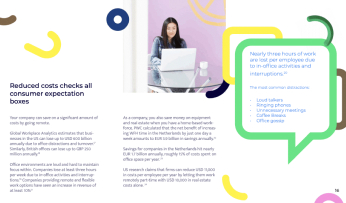Richard Branson said, “There are few things more important than good old-fashioned, one-on-one, ‘How can I help you today?’ customer service.”
And who can offer better advice than the chair of the internationally-renowned Virgin Group? To test his staff, Branson once prank-called his own company, demanding to speak to Richard Branson.
Starting your career in customer service is an excellent choice. Every company in the world is focusing on it in some way. And though there are no undergraduate degrees in it, why not make like Jackie Chan and do your own training?
After all, this is an area of expertise whose time has definitely come.
Prepping for the job
Whether you provide great or terrible customer service, it’s game-changing for consumers.
Unhappy customers whose problems are handled quickly and effectively end up being more loyal than if they never had a problem at all. Shoddy service, on the other hand, makes at least 2 out of 3 customers immediately stop purchasing.
So, what can you do to make sure you’re providing customers with a great service experience?
Perfect your communication skills
As an agent, your most important skill is communication: how closely you listen, and how clearly you express yourself.
Your daily job is dealing with people while representing a company to its customers. Handling complaints, gathering feedback, tracking orders, and sales promotions are all in a day’s work.
☎️ Practice being a good listener and work on your communication skills.
It’ll help you understand customer issues faster and discuss alternatives while maintaining your company’s positive image.
Sharpen your problem-solving abilities
People dial in when they’re experiencing some kind of problem. Consequently, 73% rate issue resolution as the most important aspect of customer service.
🧠 Train yourself to analyse situations quickly and use critical thinking to come up with different solutions.
Remember, customers see you as Mighty Mouse, there to save the day. The key to handling unpredictable scenarios is adapting your response accordingly.
Increase your emotional intelligence
Understanding another person’s mood and responding appropriately to social cues is the basis of emotional intelligence. E.I. matters a lot because if customers feel they’ve been treated shabbily, 70% will turn away.
🤠 Forget scripted responses and personalise your interactions.
Listen with empathy and be patient while handling complaints. Having high E.I. is an important personal asset for any support role.
Get savvy with tech tools
Given the recent push to virtualise everything, remote customer service is mainly a digital channel. Being able to learn new software is a major advantage as most support requests come with a time crunch.
🧑💻 Spend time acquiring tech know-how and honing your digital chops.
Imagine you’re dealing with an irate customer and four programs to run scans on. Even if you’re not Edward Scissorhands, developing your software skills helps you organise and resolve issues quicker.
Practice professionalism
You may frequently encounter dissatisfied customers in this line of work. Their grumpiness could be due to ill-timed product issues, long-hold times, a previous interaction, or an unrelated reason.
😌 Hone your conflict management skills to take ownership of difficult situations.
Focus on resolving customer problems by being task-oriented. Avoid reacting personally and be professional at all times.
Service versus support
Traditionally, customer support involved fixing issues at product, purchase, and technical levels. But customer service is about building brand-customer relationships.
The historical role of cost centres functioning to retain customers isn’t in vogue any longer.
According to Gartner, nearly two-thirds of the customer service industry is now focused on adding value to the consumer experience. Growing the business is a critical priority for 2022.
When handling customer enquiries, ask yourself, ‘Why do we provide support?’ Your work is the bridge connecting the customer to your company. Adding ‘why’ to your perspective helps you improve the overall experience.
It’ll shape your growth as a service professional, too.
Get started!
There were close to 3 million customer service jobs in 2020. Projections are that this will continue to grow at 5 percent up to 2026.
So, if you’re ready for a job in remote customer service, join us at Cocoroco. We believe in you.




